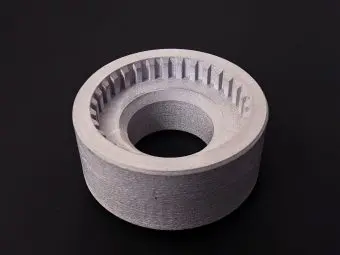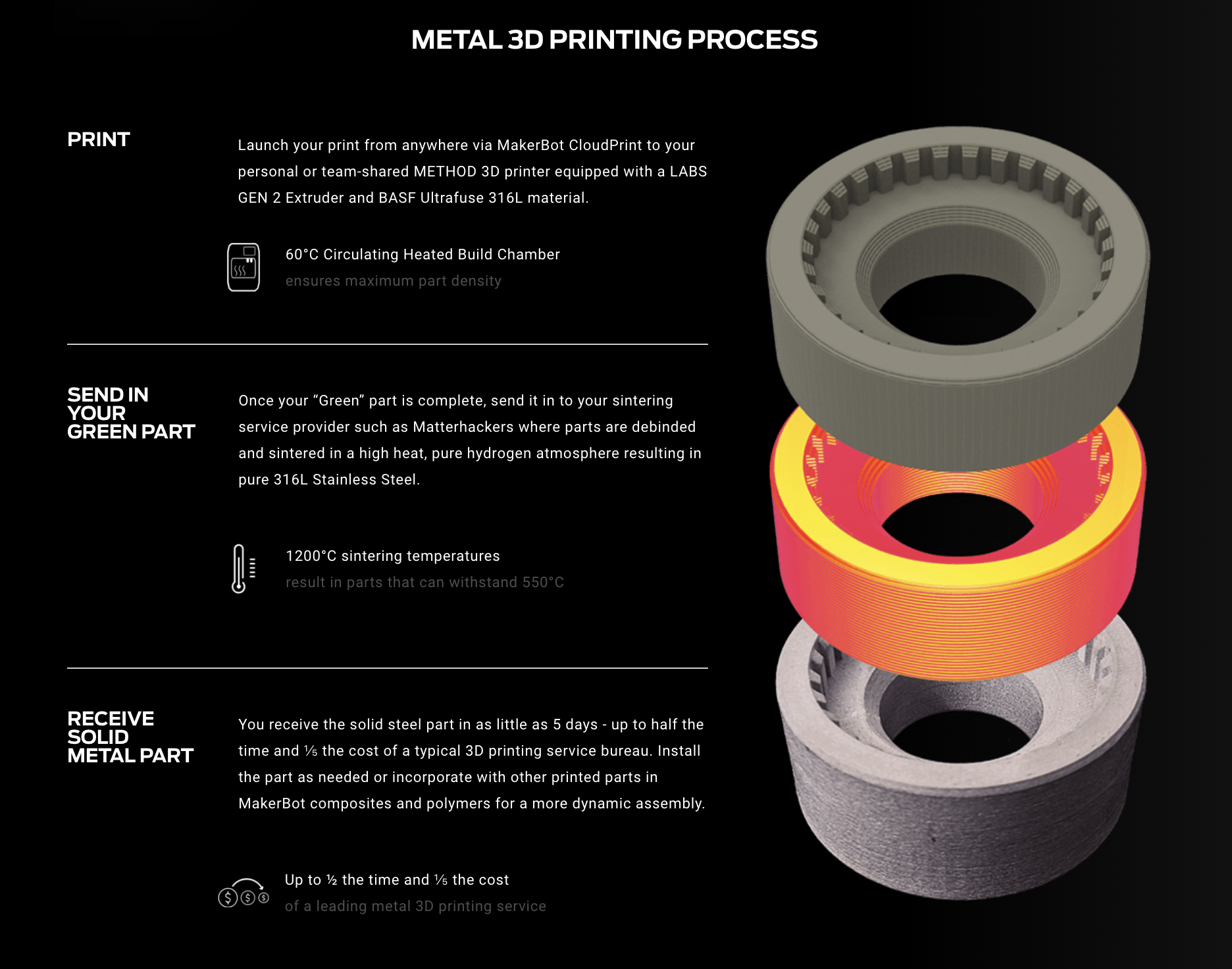MakerBot qualified the BASF Ultrafuse 316L Stainless Steel material by Forward AM for the MakerBot LABS Experimental Extruder for its METHOD 3D printers. With an open materials platform and a growing portfolio of advanced engineering-grade materials, METHOD is now the only industrial desktop 3D printer in its price-class with a heated chamber that can print polymer, composite, and metal materials.
The MakerBot LABS GEN 2 Experimental Extruder enables users to print with a list of third-party materials on METHOD. The extruder expands AM’s possibilities for new and different applications. Users can print engineering-grade plastics and carbon fiber materials while also exploring applications with experimental metal 3D printing solutions. METHOD’s modular platform lets users easily switch between six different extruders that allow them to print different base and model materials. MakerBot is continuing to identify additional industrial 3D printing materials for the METHOD platform.
Ultrafuse 316L Stainless Steel is a metal-polymer composite material that provides METHOD users with an accessible and cost-effective option to experiment with metal 3D printing applications. The system does not require the significant investment typically needed for a dedicated metal 3D printing solution. 3D printing stainless steel parts can also shorten the time it takes to produce parts, which further reduces operational costs compared to traditional methods. METHOD’s heated chamber and ability to control the speed at which a part cools down during the printing process can also help reduce the risk of de-lamination.
Manufacturing on Demand
Users can produce lightweight, hollow metal parts with high tensile strength compared to polymers that would be difficult to produce in other ways. Once the part is printed with BASF Forward AM Ultrafuse 316L, it can then be sent out to post-processing or specialized manufacturing facilities for de-binding and sintering, which turns the part printed with the composite material into solid stainless steel. This process allows users to create stainless steel parts without investing in expensive de-binding and sintering equipment. Final parts can achieve up to 96% of the density of pure 316L metal material.

Processing tickets for de-binding and sintering are available through Matterhackers, a leading material and 3D printer reseller in the U.S. MatterHackers is an Ultrafuse 316L authorized reseller, and also offers build plate adhesives needed to print the material and design consultation, which is highly recommended due to the special design requirements for this material.
Ultrafuse 316L and additional de-binding and sintering options are available through authorized resellers.
* This article is reprinted from 3D Printing Media Network. If you are involved in infringement, please contact us to delete it.
Author: Adam Strömbergsson



Leave A Comment